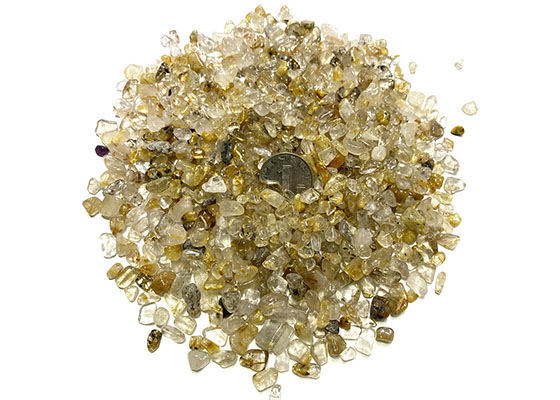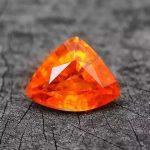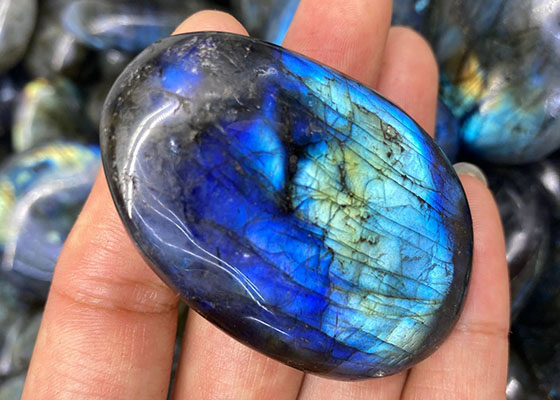Gemstones have been treasured for their beauty and healing properties for centuries. Two popular gemstones that are often compared are golden rutilated quartz and citrine. Both of these stones are known for their unique beauty and purported benefits, but they are actually quite different from each other. In this post, we’ll take a closer look at golden rutilated quartz and citrine, their properties and benefits, and how they differ from each other.
What is Golden Rutilated Quartz?
Golden rutilated quartz is a variety of quartz that is characterized by the presence of golden needle-like inclusions called rutiles. These rutiles can be straight or curved, and they can be thick or thin. The golden rutiles give the stone a unique appearance that is highly prized by many gemstone enthusiasts.
Formation
Golden rutilated quartz is formed when golden rutile crystals grow inside quartz crystal formations. The rutiles grow in a way that is parallel to the crystal’s axis, resulting in a unique pattern of golden needles within the clear quartz.
Properties and Benefits
Golden rutilated quartz is believed to have a number of metaphysical properties. It is said to enhance intuition and psychic abilities, and it is believed to provide protection against negative energies. It is also said to help boost the immune system and improve overall physical health.
In addition to its metaphysical properties, golden rutilated quartz is highly valued for its beauty. Its unique appearance makes it a popular choice for jewelry, and it is often used in pendants, earrings, and bracelets.
Varieties of Rutilated Quartz
In addition to golden rutilated quartz, there are other varieties of rutilated quartz. These include:
- Black rutilated quartz: This type of rutilated quartz has black needle-like inclusions instead of golden ones.
- Silver rutilated quartz: This type of rutilated quartz has silver or grey needle-like inclusions.
- Red rutilated quartz: This type of rutilated quartz has red needle-like inclusions.
What is Citrine?
Citrine is a yellow or golden-colored variety of quartz. It is one of the most popular gemstones in the quartz family, and it is highly valued for its color and clarity.
Formation
Citrine is formed when amethyst, another variety of quartz, is heated to high temperatures. The heat causes the iron in the amethyst to oxidize, resulting in the yellow or golden color of citrine.
Properties and Benefits
Citrine is believed to have a number of metaphysical properties. It is said to bring joy, prosperity, and abundance into one’s life. It is also said to help boost creativity and self-confidence, and it is believed to provide protection against negative energies.
In addition to its metaphysical properties, citrine is highly valued for its beauty. Its bright yellow or golden color makes it a popular choice for jewelry, and it is often used in necklaces, rings, and earrings.
Varieties of Citrine
There are a few different varieties of citrine, including:
- Natural citrine: This is citrine that has not been heat-treated. It is rare and highly valued.
- Smoky citrine: This is a combination of smoky quartz and citrine. It has a smoky brown color with hints of yellow or gold.
- Madeira citrine: This is a deep orange or reddish-brown variety of citrine.
Differences Between Golden Rutilated Quartz and Citrine
While both golden rutilated quartz and citrine are beautiful gemstones, they are actually quite different from each other.
Appearance and Color
Golden rutilated quartz has a clear background with golden needle-like inclusions, while citrine has a consistent yellow or golden color throughout the stone. Golden rutilated quartz has a unique and distinctive appearance due to the golden rutiles, while citrine has a more uniform appearance.
Physical Properties
Golden rutilated quartz and citrine have different physical properties. Golden rutilated quartz has a hardness of 7 on the Mohs scale, making it relatively durable and suitable for everyday wear. Citrine has a slightly lower hardness of 6.5 to 7, which makes it slightly less durable. Both stones have a similar specific gravity, but golden rutilated quartz is generally denser than citrine.
Metaphysical Properties
While both golden rutilated quartz and citrine are believed to have metaphysical properties, they are associated with different aspects of spirituality. Golden rutilated quartz is said to enhance intuition and psychic abilities, while citrine is said to bring joy and abundance into one’s life. Both stones are believed to provide protection against negative energies.
Value and Cost
Golden rutilated quartz and citrine vary in value and cost. Golden rutilated quartz is considered a rare and highly prized gemstone due to its unique appearance. It can be more expensive than citrine, especially if the rutiles are well-defined and evenly distributed throughout the stone. Citrine, on the other hand, is a more affordable gemstone, although high-quality natural citrine can be quite valuable.
How to Choose Between Golden Rutilated Quartz and Citrine
When choosing high quality wholesale crystals jewelry that made of golden rutilated quartz and citrine, there are several factors to consider.
Personal Preferences
The first consideration is personal preferences. Both stones have unique and distinct appearances, so it’s important to choose the one that you find most appealing.
Intended Use
Another consideration is the intended use of the stone. If you’re looking for a gemstone for everyday wear, golden rutilated quartz may be a better choice due to its durability. If you’re looking for a gemstone for a special occasion or for occasional wear, citrine may be a more affordable and attractive option.
Budget
Finally, budget is an important consideration. Golden rutilated quartz can be more expensive than citrine, especially if you’re looking for high-quality stones. If budget is a concern, citrine may be a more affordable option.
Conclusion
Golden rutilated quartz and citrine are both beautiful gemstones with unique properties and benefits. While they are often compared to each other, they are actually quite different from each other in terms of appearance, physical properties, metaphysical properties, and value. When choosing between these two gemstones, it’s important to consider personal preferences, intended use, and budget. Whether you choose golden rutilated quartz or citrine, you’ll have a beautiful and valuable gemstone that can bring joy, abundance, and protection into your life.




